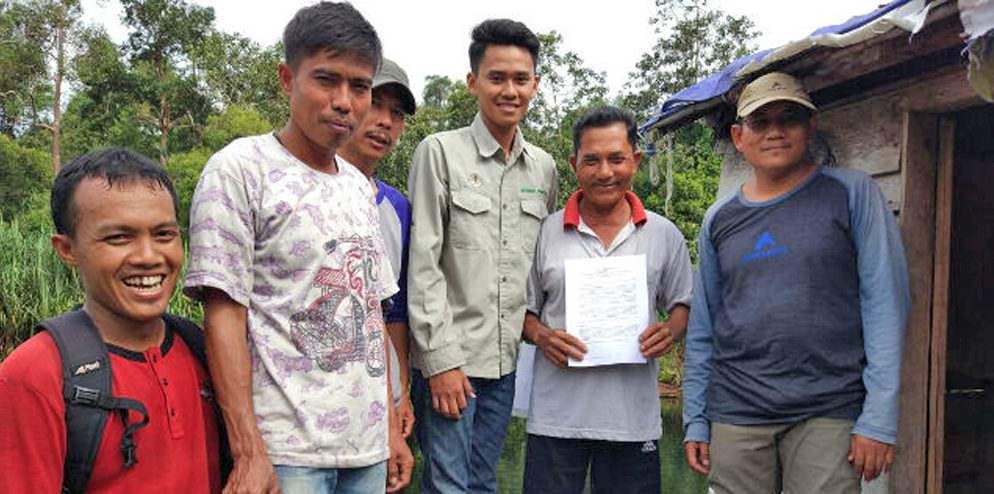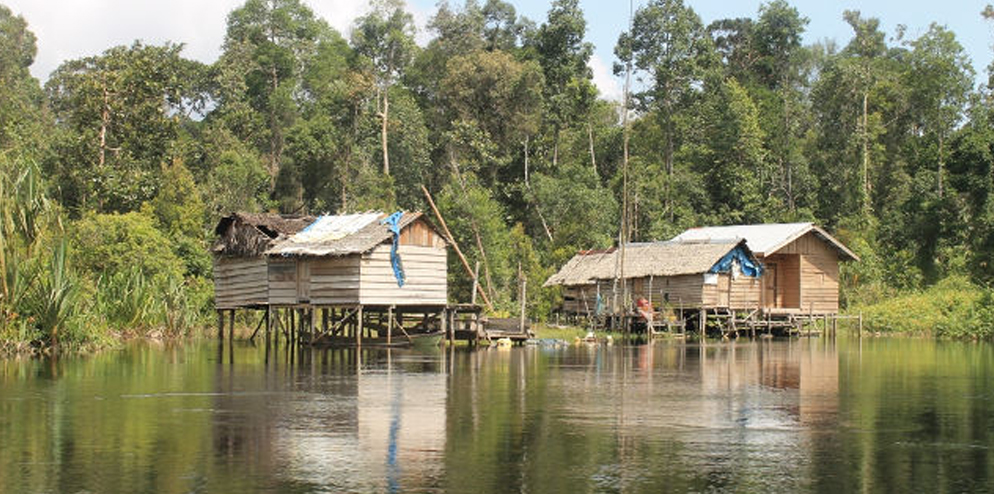December 06, 2016
Rivers in the lowlands of Sumatra’s tropical peat land forest are the traditional “highways of life” for Melayu people which have a long tradition of using the rivers for transportation and fishing. The Kampar Peninsula in Riau province is one of the last and largest peat land forest areas in Sumatra, measuring over 650,000 ha.
There are four main rivers on the Kampar Peninsula that include Kutup, Turip, Serkap and Sangar Rivers which extend 20-30 km into the central core peat dome of the peninsula. These rivers contain an abundance and variety of fish and support diverse populations of trees, orchids, birds, mammals and other wildlife, now totaling over 500 different species. The continued access to these four rivers and utilization of the fisheries by the communities surrounding the Kampar Peninsula is important to maintain traditional cultural practices and human well-being.

Restorasi Ekosistem Riau (RER), a privately-funded ecosystem restoration effort, is working closely with fisherman from Teluk Meranti and Pulau Muda to ensure they have continued secure access and successful fish harvest’s now and in the future. After many months of discussion, a Collaboration Agreement was signed in October 2016 between RER and 20 people that form Kelompok Nelayan Serkap Jaya Lestari or the “Successful and Everlasting Serkap Fishing Group”.
The fisherman travel and live on the river in small elevated, wooden huts, from 1-3 weeks or more at a time, in search of fish, checking their nets, and drying their fish catch. Once they have enough fish, they make the long trip back to their villages to sell their catch and take a rest.

RER assisted the fisherman to form the Serkap Fishing Group which utilize the Serkap River, in order to more effectively plan, coordinate, and communicate about issues important to them which include securing fishing rights, and maintaining and improving fish habitat and catches. Some fisherman had reported that their fishing harvests have declined from year-to-year because more people are fishing in the river.
Through the Agreement, RER will monitor who is using the Serkap River and ensure no unauthorized use is occurring. Additionally, fish catches will be reported and measured in order to monitor the trends in quantity and types of fish being caught, so this can be well-managed. And finally, it is now agreed to prohibit the illegal use of fire for land-clearing; polluting the river with garbage; or use of poisonous chemicals or electrical tools for catching fish.
In return, RER will assist the fisherman to obtain some of the specialized equipment needed for catching fish in a safe and environmentally friendly way.
The leader of the Serkap Fishing Group, Pak Bakhtiar from Teluk Meranti stated, “There are many varieties of fish, including some rare species. RER presence has opened the eyes of the local community to better care for the river ecosystem. I thank RER for their rangers that guard the river 24-hours a day, and ban the use of electric tools and poisons for fishing, so fishermen from outside the Fishing Group will not operate again, and the local fishermen are more aware about health of the river.”
The fisherman and RER have already initiated activities to manage the fisheries in Serkap by monitoring and reporting fish catches in 2016, now averaging over 300-kg per month. Additionally, in the past two years (2015-16), there has been no incidence of fire in the Serkap River. Further, RER forest rangers did stop fisherman from outside the Serkap Fishing Group from entering the river with intent to use illegal electrical fishing tools.
The above activities, especially those to protect the Serkap from persons who engage in illegal fishing, have received full support from Teluk Meranti village head. Both the Serkap Fishing Group and RER will work together to prevent violations of forest laws in force in Indonesia.
RER and their partner, Fauna and Flora International, are now conducting fisheries surveys to assess the current status of fisheries in all the rivers of the Kampar Peninsula. This baseline data is an important starting point to begin long-term management of the fisheries.
In 2017, RER plans to expand their efforts by working closely with fisherman that primarily utilize the Kutup, Turip and Sangar rivers on Kampar Peninsula. The focus will not only include monitoring and reporting sustainable fish harvests, but also assure threatened and protected species of fish, amphibians and reptiles are not harmed by the fishing activities.
The Restorasi Ekosistem Riau (RER) team is committed to collaborating with local communities to assure their well-being now, and also manage the forest and fisheries resources for the benefit of society in the long-term.